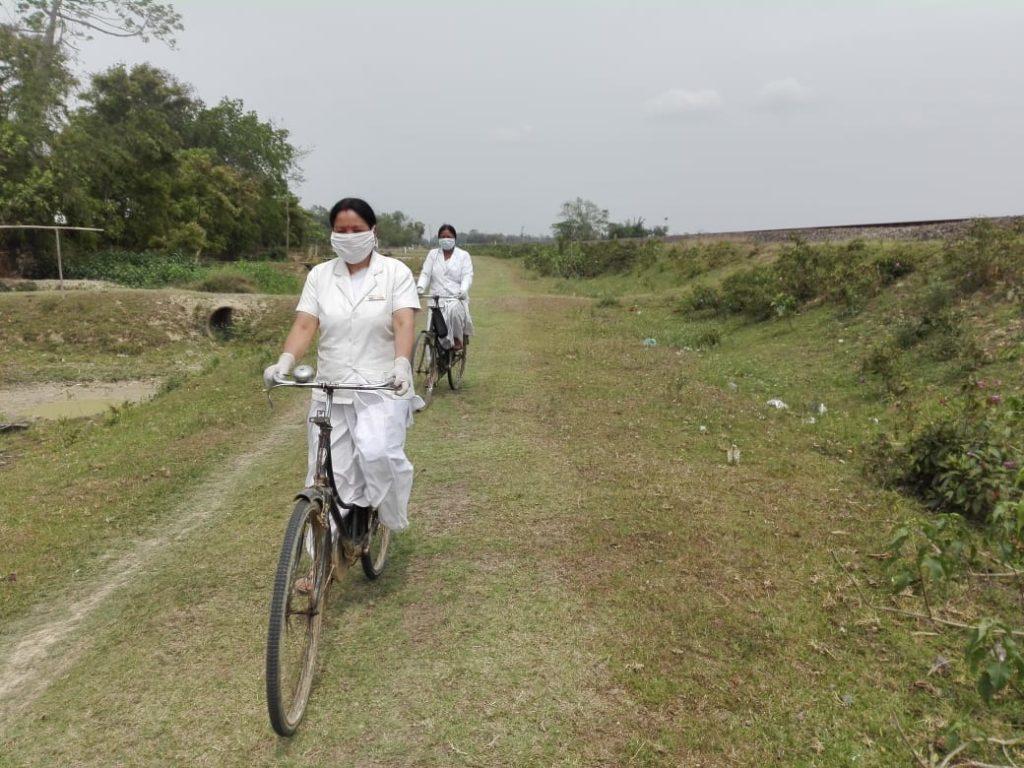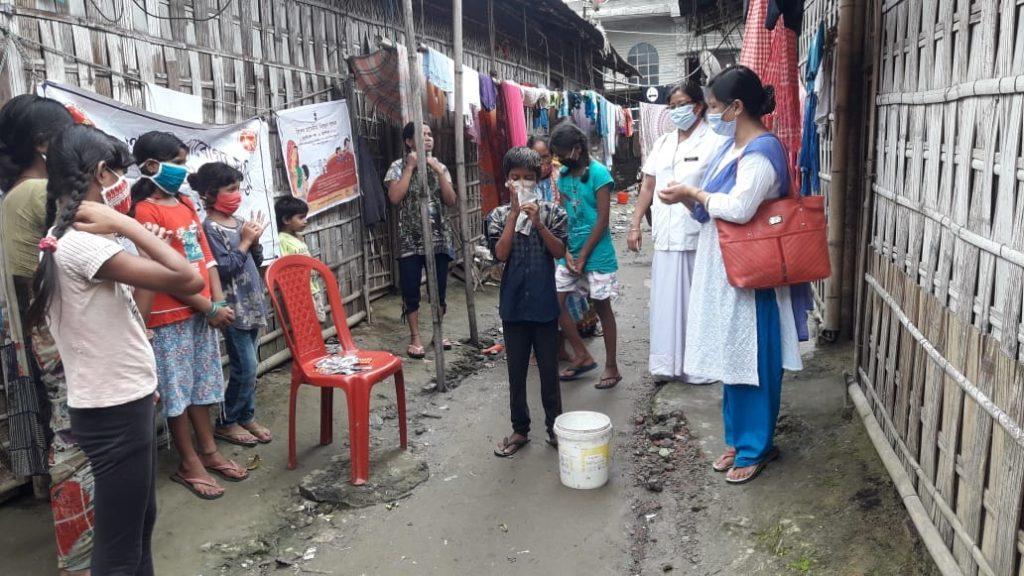
As you probably know, the World Health Organization had designated 2020 as the Year of The Nurse & Midwife to mark the 200th birth anniversary of Florence Nightingale, the founder of Modern Nursing. Little did the nursing and midwifery community fathom what a ‘profession defining’ year it was going to be when the announcement was made! The past year epitomised the critical contributions of nurses and midwives as a pertinent cadre of frontline health workers fighting the pandemic across the world, while also doing the rest of their essential work.
After this rather horrific year, everybody is now aware of their vital importance in the health system, if that was still needed. Being the most trusted companions of community members (particularly the women), nurses and midwives play a crucial role in shaping their experiences with the healthcare system. In India, an army of nearly two million nurse-midwives and 90,000 Auxiliary Nurse & Midwives (ANMs) have been tirelessly delivering their usual health services in the community, health care centres, and hospitals while also shouldering the numerous additional COVID-19 responsibilities of contact tracing, surveillance, awareness generation, and assisting other frontline health workers in carrying out field activities, often with bare minimum protective gear.
Several webinars organized during the year, including by Women in Global Health (WGH) India, Public Services International, Manipal College of Nursing, Indian Institute of Public Health Gandhinagar, and various informational webinars conducted by central and state government departments, the All India Institute of Medical Science (AIIMS) and others, highlighted the valuable contributions of nurses, midwives, and ANMs, who continue to go beyond their call of duty, sometimes risking their lives and that of their families during the pandemic. These discussions also brought to the fore the numerous challenges they face while performing their responsibilities. Working without adequate protective equipment, facing stigma and violence by the communities (as they are often viewed as the carriers of the virus), harassment and eviction without notice, lack of transportation, particularly in difficult and dangerous terrains, having to cope with and work through natural disasters such as the floods in Assam, … all these challenges overloaded and stressed them, while they were also juggling competing COVID and non-COVID related responsibilities. The webinars also emphasized the urgent need to bring them into decision-making spaces at all levels of health care provision and health policymaking. Serving as the crucial link between the health systems and the community, nurses and midwives are indeed vitally important for the nation’s journey towards Universal Health Coverage (UHC) and the Sustainable Development Goals (SDGs). Now, more than ever, the world needs these nurses and midwives to be working to their fullest potential, in terms of education, capacities, skills, and leadership.
The State of the World’s Nursing Report 2020 argues that the world needs an additional six million nurses to achieve global health targets, with 89 percent of the gap concentrated in low-and-middle-income countries (India is amongst the five countries with the largest shortages). The Government of India has committed to adding 85,000 midwives to the workforce by 2023. But we also need to ensure that nurses and midwives are equally distributed across the country, particularly in resource-constrained settings, and to assist economically and socially marginalized communities. India (particularly Kerala) has been a major source of migrant nurses across the world for decades now, ranking second globally in nurses’ out-migration. These nurses have been (and are) serving at the frontlines in many parts of the world during the pandemic, mainly in the global north and the Gulf region.
So far the scope of nursing has largely remained stagnant in India, with limited opportunities for career growth and development, moving into a professional cadre, and particularly leadership positions. The lack of, or delays in amendments in Acts, and lack of representation of nurses and midwives in governance and leadership positions in councils and committees have clearly harmed their professional growth prospects. The recent draft National Nursing and Midwifery Commission Bill (November 2020) fails to address the need for more clarity on roles, career progression, representation, and appointment of nurses and midwives in key leadership positions. The draft commission bill also undermines midwifery as an independent profession and does not lay out the definition or scope of practice well, even though the Government of India is implementing professional midwifery in the country. Members of WGH India have acknowledged this and added their voices in solidarity with thousands of nurses, midwives, ANMs, and people of India who have shared their concerns with the Government of India in response to the bill (see the detailed comments here).
These systemic challenges coupled with the gender, caste, and class-based realities of the nurses and midwives working on the ground, disempower them and limit their role in, and contribution to (building) the Indian health system, which would allow faster progress towards UHC and SDG targets. To be able to fully leverage the potential of these crucial cadres, the country needs to critically ponder the needs and wellbeing of nurses and midwives. This may include investment in nursing and direct-entry midwifery education, re-thinking and planning regulation, ongoing in-service capacity building, and career development; competitive remuneration, continued recognition and motivation, and infrastructural and systems support for them to carry out their responsibilities more effectively. Midwives and nurses need to be at the centre of workforce governance planning. The creation of a directorate of nursing and a directorate of midwifery under the central and state government, would be a great start.
The year 2020 concluded with the announcement of 100 outstanding Nurse and Midwife Leaders by Women in Global Health (WGH), supported by the World Health Organization, International Council of Nurses (ICN), International Confederation of Midwives (ICM), United Nations Fund for Population Activities (UNFPA) and the Nursing Now Campaign. This recognition honoured their courageous work and highlighted the importance of their leadership in diverse roles, by sharing their inspirational stories of everyday heroism, passion, determination, and service to their communities. Five of the featured leaders are of Indian origin, namely Anandhi Subramani, Bimla Kapoor, Kaveri Mayra (also co-author of this piece), Maibam Ranita Devi, and Manju Dhandapani. Obviously, this effort also represents the numerous nurses and midwives across the world who are not listed but are also doing incredible work within their communities and deserve all the accolades. We, as nations and communities, need to critically reflect on their evolving roles and provide them with the necessary support, recognition, and representation at all levels and continue investing in their development.
While 2020 has ended, our nurses, midwives, and ANMs continue to play a crucial role in India as well as across the world in 2021, helping citizens and communities to recover from the COVID-19 pandemic. So, let us build a resilient and responsive health systems, with also nurses, midwives, and ANMs in leadership roles, in which everyone can truly flourish.

Acknowledgements: The authors would like to thank Dr. Sumit Kane for his initial thoughts and suggestions and Kristof Decoster for his edits and comments in revising the piece.